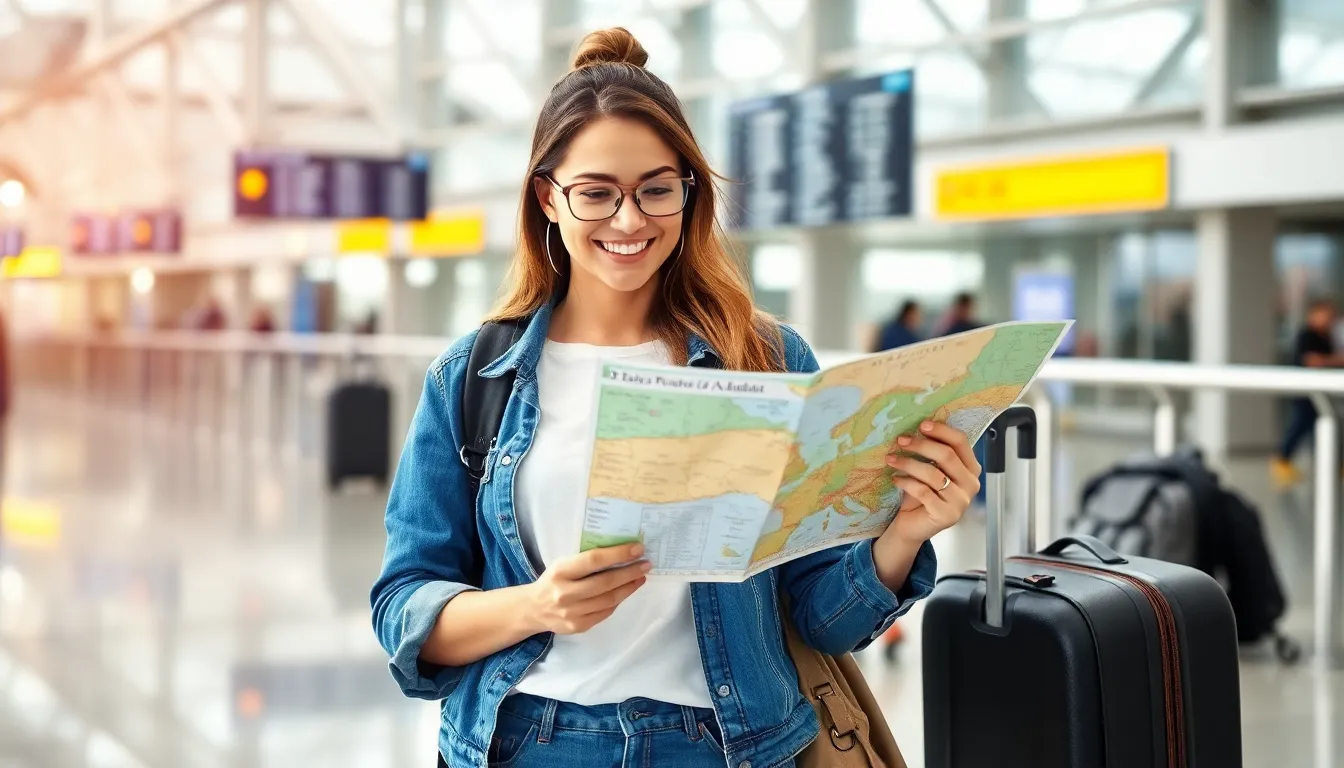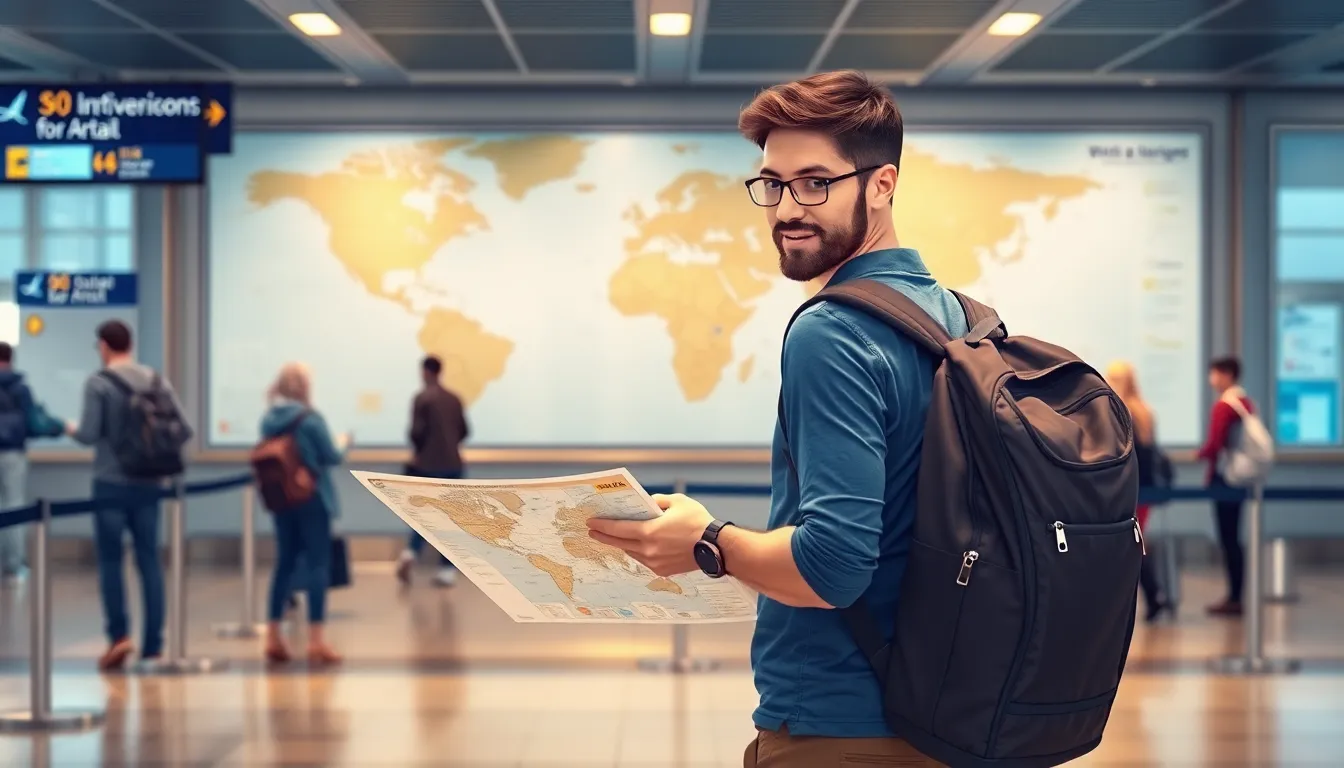Traveling can be a thrilling adventure filled with new experiences and unforgettable memories. But let’s face it, nothing ruins a dream vacation faster than a preventable mishap. Whether it’s a lost passport or a questionable street taco, being unprepared can turn your getaway into a real-life episode of a travel horror show.
That’s where travel safety essentials come in. Think of them as your trusty sidekick, ready to swoop in and save the day. From smart packing tips to must-have gadgets, knowing how to keep yourself safe can make all the difference. So buckle up and get ready to explore the world with confidence, because with the right precautions, you can enjoy every moment without the worry of what might go wrong.
Table of Contents
ToggleUnderstanding Travel Safety Essentials
Travel safety essentials play a crucial role in ensuring a smooth and enjoyable journey. Being prepared reduces stress and helps travelers navigate potential mishaps effectively.
Importance of Travel Safety
Travel safety ensures personal well-being and protects valuable possessions. It minimizes risks like theft, illness, and accidents. Prioritizing safety allows travelers to focus on enjoying their experience rather than worrying about potential hazards. Keeping essential documents, extra cash, and emergency contacts readily available strengthens security. Understanding local customs and emergency protocols also enhances awareness. Moreover, using safety gadgets like portable alarms and tracking devices boosts peace of mind.
Common Travel Risks
Travelers face various risks that can hinder their enjoyment. Theft often occurs in tourist-heavy areas, affecting both belongings and personal safety. Food-related illnesses frequently impact health, particularly when consuming unfamiliar cuisine. Natural disasters pose threats in certain regions, affecting transport and accommodation. Language barriers can complicate navigation and communication, leading to confusion in critical situations. Accidents, including slips and falls, can happen anywhere, making vigilance essential. Recognizing these common risks allows travelers to take proactive measures and reduce the likelihood of negative experiences.
Preparing for Your Trip


Traveling involves more than excitement; preparation enhances safety during the journey. A few key components ensure a secure experience.
Researching Destinations
Understanding destinations proves vital for safety. Travelers should know local laws and cultural norms. Identify high-risk areas, and steer clear of them. Review recent travel advisories from government sources for the destination’s status. Gather insights on local healthcare facilities, as access may vary. Stay informed about natural disasters or political unrest in the region. This knowledge allows travelers to adapt plans and stay safe.
Travel Insurance
Securing travel insurance adds an extra layer of protection. Policies often cover trip cancellations, medical emergencies, and lost belongings. Consider reviewing multiple options to find comprehensive coverage that suits specific needs. Ensure medical coverage extends to international locations, as healthcare costs can be high. Evaluate additional features, such as emergency evacuation, which can save lives. It’s smart to keep a copy of the policy accessible during travel for quick reference.
Packing Smartly
Packing smartly involves gathering essential safety gear and important documents. This preparation enhances overall travel safety and ensures a smooth experience.
Essential Safety Gear
Travelers must include basic safety gear in their packing list. A first aid kit containing bandages, antiseptics, and pain relievers protects against minor injuries. Flashlights with extra batteries help in emergencies or power outages. An emergency whistle can signal for help if needed. Portable phone chargers and power banks ensure devices remain charged during adventures. Personal safety alarms add additional peace of mind in unfamiliar environments. Durable and lightweight travel locks secure bags and luggage, preventing theft. Finally, a multi-tool offers various functions, making it a valuable addition.
Important Documents to Bring
Essential documents play a vital role in travel safety planning. Passports need to be kept in an easily accessible yet secure location. Copies of important documents like visas or identification can serve as backups. Travel insurance policies should be printed or saved digitally for quick reference. Additionally, having emergency contact information readily available aids in unexpected situations. Local maps and itineraries help navigate unfamiliar surroundings. Currency in local denominations simplifies transactions. Lastly, any necessary medical prescriptions should be brought along to avoid complications while abroad.
Staying Safe While Traveling
Traveling can be exhilarating, but it comes with risks. Prioritizing safety ensures an enjoyable experience.
Personal Safety Tips
Maintain awareness of surroundings at all times. Situational awareness reduces the risk of theft or other dangers. Keep valuables secure and out of sight. Avoid displaying expensive items like jewelry or gadgets. Use hotel safes for storing important belongings. Engage with locals to gain insights on safe areas and potential risks. Establish an emergency plan, including local emergency numbers. Connecting with fellow travelers can enhance safety. Trust instincts and avoid situations that feel uncomfortable.
Health and Hygiene Considerations
Stay mindful of personal health and hygiene while traveling. Carry a basic first aid kit that includes essential medications. Seek out local health advice to avoid food-related illnesses. Drinking bottled or purified water helps prevent stomach issues. Regular handwashing can reduce the risk of spreading germs. Vaccinations may be necessary depending on the destination. Educate about health care facilities in the area. Keeping copies of medical prescriptions ensures access to necessary medications. Prioritize health safety to make the most of travel adventures.
Navigating Emergencies
Being prepared for emergencies ensures travelers can respond effectively. Knowing what steps to take during unexpected situations significantly improves safety.
What to Do in Case of an Emergency
Assess the situation immediately. Inform local authorities if necessary. Stay calm to think clearly, as panic can cloud judgment. Contact local emergency services for help while providing relevant information. Follow instructions given by responders closely. Keep essential documents nearby, including identification and travel insurance. Utilize available resources like hotel staff or fellow travelers for guidance. Reaching out to emergency contacts back home can also provide support and reassurance.
Local Emergency Numbers
Familiarize oneself with local emergency numbers before traveling. In many countries, dialing 112 connects to general emergency services. Recognizing that some regions may have unique numbers, research these specifics for police, fire, and medical emergencies. Write down critical numbers and store them in a secure location. Keep a digital copy on a mobile device for easy access. Sharing these numbers with travel companions establishes a shared awareness of emergency procedures. This proactive approach enhances safety and ensures a swift response in critical situations.
Conclusion
Traveling can be an exhilarating experience filled with unforgettable moments. By prioritizing safety and being well-prepared, travelers can significantly reduce the chances of mishaps. Packing essential safety gear and important documents is crucial for a smooth journey.
Staying informed about local customs and emergency protocols enhances awareness and confidence. Engaging with locals and establishing a solid emergency plan can further safeguard against potential risks.
With the right preparation and mindset, travelers can focus on enjoying their adventures while minimizing worries. Embracing these travel safety essentials ensures that every trip is not just memorable but also secure.



